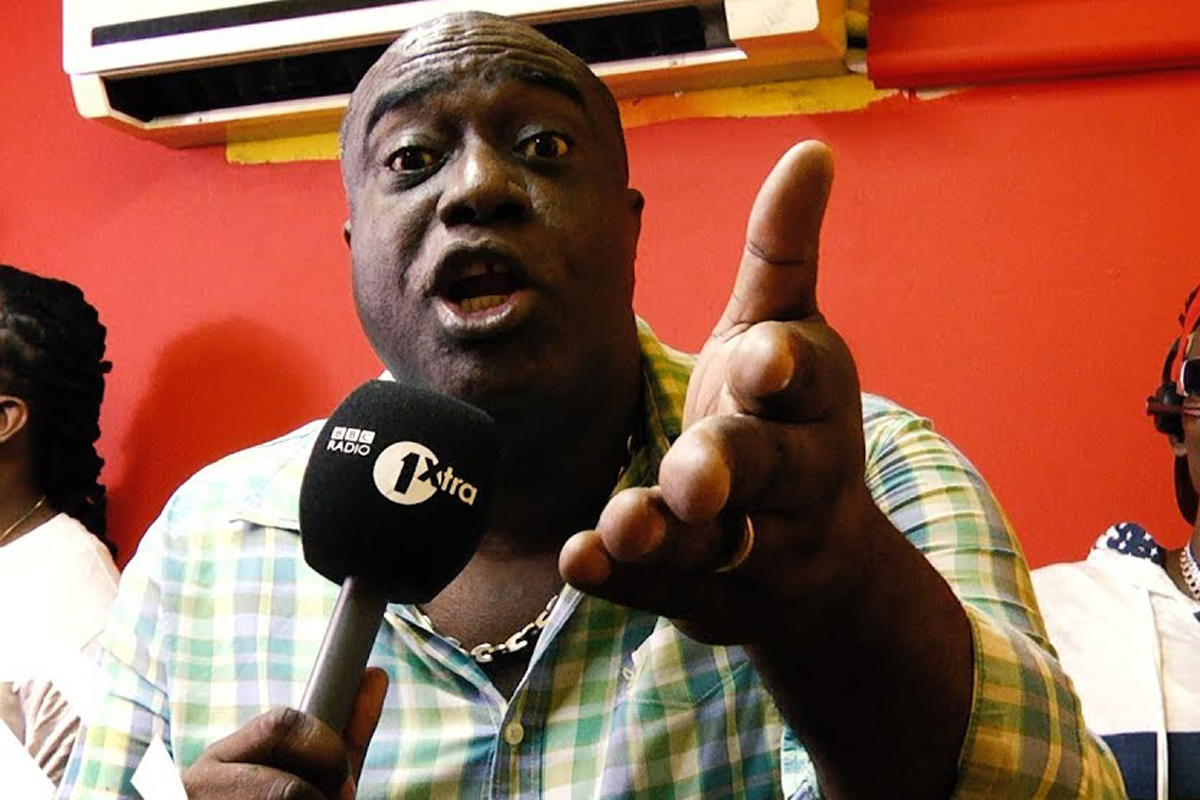Admiral Bailey Calls For U-Turn To Dancehall “As Quick As Possible”

Horse Tonic deejay Admiral Bailey, has renewed his call for Jamaica’s music producers to return to creating authentic Dancehall and Reggae beats, in order to stem the tide of the two genres “falling off” in some parts of the world.
In a post-performance interview with Reggae Interviews at Reggae Sumfest, the Admiral, whose given name is Glendon Bailey, said he was aggrieved at the state of the music, which has seen a departure from Dancehall beats to other non-Jamaican genres.
“That is what I’m saying, that you know we need more producers more organizers to go dung dah trend yah so dat people can remember where di original dancehall come from. Becaw right now it a stray. It is off the path and mi upset. Because this new beat weh mi a hear, this is not dancehall,” Bailey said.
“Wi need fi guh back to di original riddim dem because them yeah because I personally travel and know say Dancehall an Reggae a drop offa di map inna certain place because di people dem don’t like di new beat. The European them don’t like dis new beat. They like the culture, the raw born one-drop Reggae music inna dem ears. A dat dem used to and wi need to mek a u-turn as quick as possible and do weh we do best,” he added.
This is not the first time that the Big Belly Man deejay has lamented the fact that the Dancehall genre was in deep trouble. In March last year, he told Television Jamaica that, among other things, it was fast money and the exploitation of the music by persons who have no real love for Dancehall, why the genre was in a state of inertia.
He also pointed out that the majority of the new persons ascribing onto themselves the title of music producers, do not know the basic tenets of music, including the seven-letter Musical Alphabet: “A, B, C, D, E, F, G”.
He also said that because of this ignorance, the artistes themselves are affected in terms of their performances, as they are unable to sing on key during live performances and are in many cases, unable to ride riddims properly, a key competence which is expected to be mastered by all deejays and singers in order to “buss”.
“Dem don’t deejay pon key. Dem deejay wid di riddim, but not on key. Dem not even deejay on beat. Dem deejay offbeat. Suh, they are offkey and they are not on beat,” he had told veteran entertainment journalist, Anthony Miller.
“These nowadays producers is just as bad as di deejay dem. Dem nuh know key. Dem nuh know A-minor; dem nuh know G-minor; Dem nuh know B-flat. Dem nuh know C; dem nuh know A… Dem get in some likkle man and dem guh pon di laptop and dem squeeze and it play a likkle riddim and dem she: ‘yeh man, a bad riddim’,” he added.
Admiral had also said that younger Jamaican deejays were not in high demand overseas, as foreigners had created their own replicas of them.
“I remember di days when we used to go pon tour an all dem suppm deh. We could carry half a Jamaica wid wi enuh… It is working for a quick bucks, but it is not working with longevity suh dat di business itself is sustained. Becaw right now Dancehall a get a knock enuh. Internationally Dancehall a get a knock,” he said,” he said, adding that substandard songs were being given pride of place through payola and money pull-ups.
“We are to be blamed because we are not spending time to do the music the right and proper way because nowadays yuh haffi inna di dance and yuh haffi a do money pull up…A right deh suh di business gone,” he continued.
